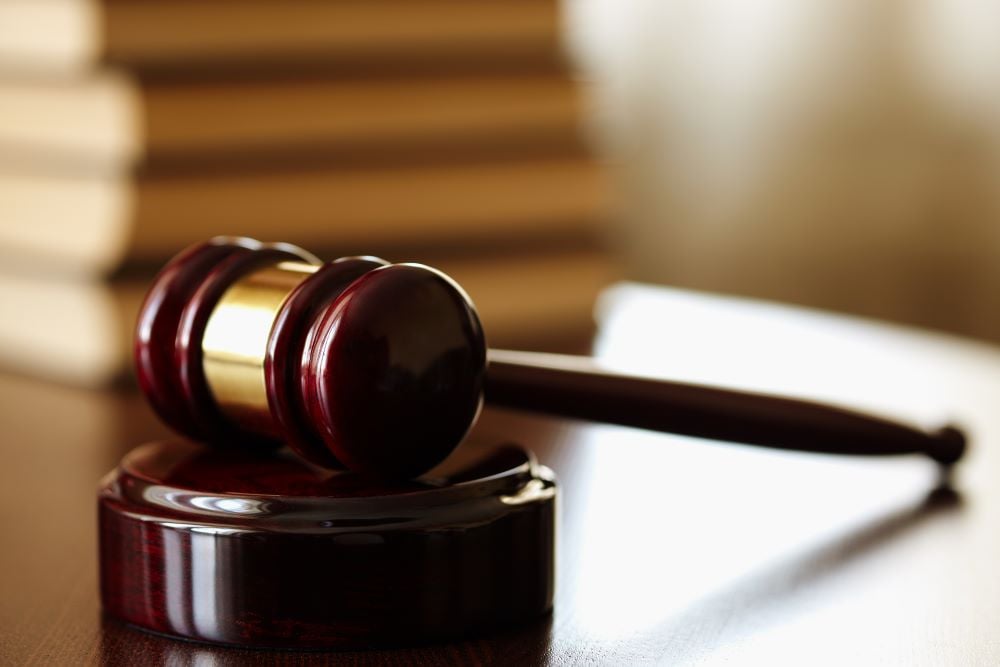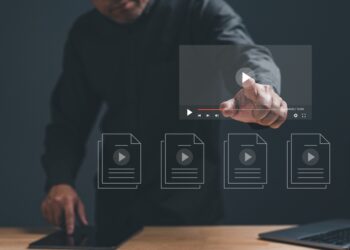Across legal studies, much has been made about the lack of research into real juries, due to legal constraints and the general sanctity of the jury deliberation process. Some scholars have referred to this dearth of research as the “jury-shaped hole.” However, attorneys and trial consultants are not at a total loss when it comes to understanding juries.
Prior to the actual trial, trial consultants have two types of methodological devices at their disposal: legal focus groups and mock trials. Both types of jury research utilize stimuli that can be presented in the real trial, and both strive for a controlled environment to understand how a real jury will respond to the case. These two methods can sometimes be conflated, or the terms used inconsistently. However, there are generally several important distinctions between the formats, content and purposes of legal focus groups and mock trials.
The Participants
The same recruiting methods are often used for both legal focus group participants and mock trial jurors. In both settings, attempts are made to use individuals who would be possible jurors for the case at hand—namely, the individuals are from the same or similar jurisdiction and fit the venue demographics as closely as possible.
Throughout the initial selection process, participants can be screened out for having specific knowledge of the case and parties, or if they have experience that would bar them from serving on a real jury for the case at hand.
Even thought participants are aware they’re not in a real jury or deciding on a real case, previous studies (and my experience) have shown the individuals tend to take the job seriously and work diligently toward their task, similar to a real jury.
It should be noted that both legal focus groups and mock trials can be conducted virtually. While remote projects are simpler logistically, in-person projects (especially mock trials) benefit from the human dynamic between the participants and the moderator and between the participants themselves.
The Format of Legal Focus Groups
Legal focus groups are generally roundtable discussions where participants gather to listen to a neutral moderator, usually a professional trial consultant. Within these roundtable discussions, the moderator or attorneys can present any case aspects, hypotheticals, evidence, or even recorded depositions and live witness testimony. The scope and length of the moderator’s presentation can be customized to the needs of the attorneys at that time in the litigation cycle. Prior to the focus group, participants are asked a series of background questions to gauge their baseline opinions and help balance out proper venue demographics
After each presentation section of the case, focus group participants are invited to share their initial reactions and responses. Participants can have limited interaction with each other here, not to convince each other to come to a unanimous decision, but to react in a more casual manner. The moderator is able to not only ask questions, but probe participants for deeper insights, whether this be on witnesses, case evidence or key videos. These participant responses are useful to see what evidence or narratives are the most persuasive, and gut-check reactions to witnesses.
At the end of a legal focus group, there is typically no verdict form or deliberation between participants; instead, participants share their final views on the case or each side’s most compelling argument with the moderator. While participants are able to hear from each other, they are not necessarily in direct dialogue with each other.
While jury research can be done at any stage in the litigation cycle, legal focus groups are best suited when the facts of the case are known, but the attorneys have not yet decided their legal strategy. Insights from a legal focus group can be put into practice in a subsequent legal focus group or a mock trial.
The Format of Mock Trials
Mock trials, unlike legal focus groups, attempt to simulate the real experience of a trial, with logistics and expense constraints considered. Mock trials are typically full day or two-day affairs, where jurors listen to opposing arguments from attorneys, who may be presenting their case at a real trial. Mock trials can also serve as an effective “dress rehearsal” to make sure a trial team, trial graphics, and witnesses are all prepared to do their best at trial.
Like legal focus groups, mock jurors are asked a series of background questions and questions relating to the case after each presentation section, providing their reactions to witnesses, evidence, and their overall leaning in the case. However, unlike in a legal focus group, a moderator does not invite an open conversation with participants. In a mock jury, all opinions and questions surrounding the case are kept private, with jurors answering questions individually. This is done to reflect a real jury experience where a judge would instruct the jury to not discuss the case prior to deliberations.
Once all presentations have been completed, the moderator will read out the verdict form and jury instructions, generally a pared down version of the verdict questions and jury instructions expected to be read at trial. A moderator will also split the full group up into smaller jury-sized groups, where groups are balanced regarding plaintiff and defense leanings, and general demographics. Mock jurors then take these instructions and verdict forms into a deliberation room, where they are tasked to come to a unanimous decision on the verdict questions, or a majority if that consensus is not reached in the allowed time.
Depending on the mock jury set-up, attorneys and trial consultants are able to hear and see these deliberations while not being in the room. The time allotted for these deliberations depends greatly on the amount of time given in the day and time allotted for presentations.
After the group has reached a unanimous decision, or at least a majority, typically a trial consultant or moderator will join the deliberation group and ask further questions to confirm the group’s answers for the verdict form, and provide the mock jurors with some debriefing questions. At this point, a moderator can also ask hypothetical questions about information that may or may not be admissible in court, but the trial team wants to get a very basic reading on. This debrief can be quite similar to the final feedback session in a legal focus group.
Mock trials are most effective when attorneys already have a well-defined legal strategy and understand what evidence will likely be presented in a case, probable jury instructions, and want to test that legal strategy to understand how the jury receives the key evidence and witnesses that are likely to be presented at trial. Some trial teams choose to do several rounds of mock trials, using the insights from previous mock trials to inform the next round before moving on to jury selection and trial.
The Content of Legal Focus Groups
Attorneys and trial consultants should use legal focus groups as a creative space where they can brainstorm different strategies, tactics and pieces of evidence they are unsure about presenting—either due to it being inadmissible in court or jurors responding negatively. As a legal focus group is more casual than a mock trial, this content can be presented less as a standard oppositional presentation, but more of a general understanding of different facts. Videos from the case or depositions can be shown without extensive context so that focus group participants can share their initial, gut-check reaction to materials presented.
Instead of going back and forth between a plaintiff and defense side, the content in legal focus groups can be more focused on critical issue modules, explaining both sides of the case and allowing participants to come to their own conclusions regarding how they understand the issues and what they think is compelling and credible.
The Content of Mock Trials
As a trial-simulated format, the content in mock trials should be close to the content expected to be presented in a real trial. For the sake of time, however, it is unreasonable to try and fit an entire trial presentation into a one- or two-day mock trial. Thus, the content in a mock trial should focus on a select few key issues that attorneys are most interested in. If plaintiff or defense credibility is a critical issue, several key minutes in a deposition are usually sufficient for jurors to make up their minds about initial impressions and credibility. If understanding one point of a patent claim is the crux of a case, it can be beneficial to spend time explaining the nuances in a way that is translatable to the average juror, rather than try to explain several complex claims in one single day project.
Unlike a legal focus group, the content in a mock trial should be enough to inform the mock jurors so they can answer the verdict questions. This may mean focusing on one or two key verdict questions, rather than providing jurors with a full, and often time-consuming verdict form.
The Purpose of Legal Focus Groups
The purpose of a legal focus group is to get a nuanced understanding of how participants who could reasonably be jurors view key case issues. If a trial team is deciding between different main trial strategies, having a baseline understanding of how jurors would view case issues can be a crucial factor in deciding case strategy.
For example, in one focus group, attorneys wanted to see how potential jurors viewed not only the content of a surveillance on a plaintiff, but if they thought said surveillance was unwarranted. The content of the surveillance greatly aided the defense, but the trial team was worried the footage would backfire if potential jurors were too upset by the surveillance taking place. In this particular case, almost no jurors were upset by the defense running surveillance on the plaintiff, and the trial team felt they could rely on this evidence more heavily.
The Purpose of Mock Trials
Mock trials, conducted closer to the trial than focus groups, attempt to distill the critical elements of the case so that mock jurors can deliberate the evidence and come up with a verdict. While the individual questions conducted throughout the presentation are valuable, the core purpose of a mock trial comes out during deliberations. During the deliberation process at the end of a mock trial, the trial team is able to see how mock jurors use the information from the presentations to sway each other to come to a unanimous decision. The trial team is also able to look at jurors’ background questions and attempt to surmise what kinds of experiences and non-demographic traits a plaintiff-leaning or defense-leaning juror might have.
Unlike legal focus groups, mock jurors are tasked with speaking directly to each other and collaboratively answering the verdict questions. Hearing jurors convince each other and view their fellow jurors as knowledgeable on the case demonstrates to the trial team how information has been processed and the key pieces of evidence mock jurors use to convince each other. Additionally, in these deliberations, the trial team can hear how jurors will likely talk about the case, using their own personal experiences and knowledge.
Overall, the purpose of mock trials is not to predict the outcome of a case, but to get a deeper understanding of how individuals representative of a potential jury may understand and react to key case evidence. Mock trials also give the trial team a chance to effectively run a rehearsal of some pieces of the case and practice presenting key moments. Furthermore, they allow the trial team to hear in real time the dynamics at play in a jury deliberation. In some cases, a trial team may use the results of their mock trial, or even their focus group, to inform damage amounts or liability at mediation.
Conclusion
While no jury research can reliably predict the future of a case, jury research can offer key insights into how a demographically similar jury might respond and find for a specific plaintiff or defense.
Both kinds of jury research, legal focus groups and mock trials, complement each other. A creative legal focus group can inform a strong mock trial. Using a simple legal focus group, attorneys can narrow in on their most compelling witnesses, narratives, and pieces of evidence. And using that insight to craft a cohesive mock trial can help attorneys provide the strongest case for their clients.
Sources:
“The curious case of the jury-shaped hole: A plea for real jury research” by Lee Ross, The International Journal of Evidence & Proof
“Lifting the veil: The use of focus groups and trial simulations in legal research” by Emily Finch and Vanessa E. Munro, Journal of Law & Society
“Mock juries, real trials: how to solve (some) problems with jury science” by L. Ross, Journal of Law & Society









Comments 1
How do I sign up for a focus group